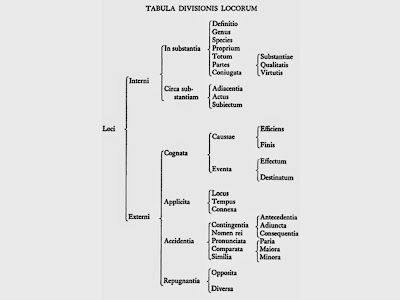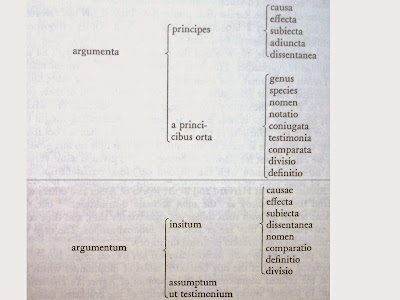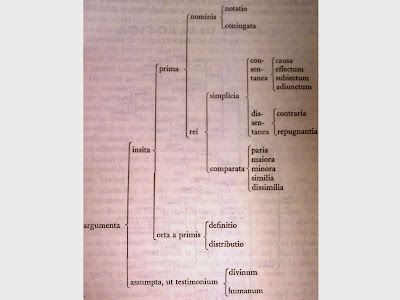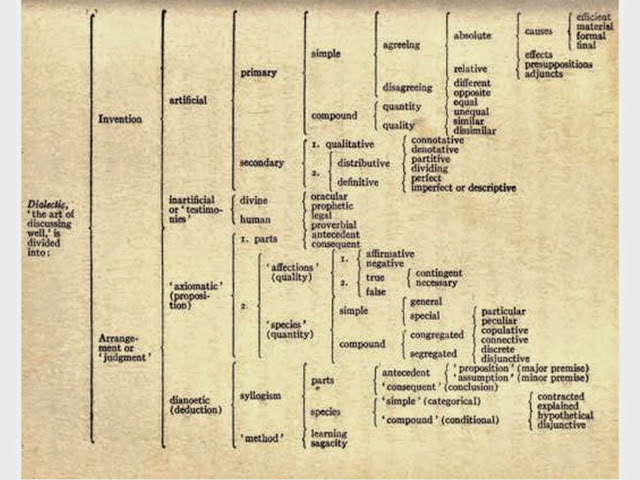Topics are heuristic devices to help people form an argument. Agricola defines them thus:
Things are immensely numerous, and their various properties and differences from one another are likewise immensely numerous. Hence it is that all the things which go with each and every individual thing, or which fail to go with it, cannot possibly be embraced by any utterance or by the human mind. However, although everything is distinct from everything else by its own distinctive marks, there is in all these things something common, and all of them tend to a likeness in nature, insofar as all of them have their own proper substances, all of them take their rise from certain causes, and all of them effect something. Thus, greatly gifted men have cut out from this profuse variety of things these common headings (capita), such as substance, cause, result, and others which we shall treat of, so that when we set ourselves to thinking about some certain thing, following these headings, we may go immediately through the whole nature and parts of the thing in question through all the things which agree with it and which disagree with it, and draw out from these headings the arguments adapted to the matters proposed. These things, common in that since they contain within themselves whatever can be said on any matter, they thus contain all arguments, were called by these men places (loci), because all the instruments for establishing conviction are located within them as in a receptacle or a treasure chest. A place (locus) is thus nothing other than a certain common distinctive note of a thing, by the help of which it is possible to discover what can be proven (or what is probable) with regard to any particular thing. Let that be our definition of a place (locus). (From Ong, 117ff)
 |
| Agricola's Loci from Ong, Ramus, p 127 |
The topics of Themistius via Phrissemius are: definition, genus, species, property, whole, parts, conjugates, adjacent, act, subjects, efficient agent, ed, consequences, intended effects, place, time, connections, contingents, name, pronunciation, compared things, like things, opposites, differences.
The fourteen
loci from Ramus are:
- Primary: causes, effects, subjects, adjuncts, disagreeings
- Derived: genus, form, name, notations, conjugates, testimonies, contraries, distributions, definitions.
From Ong's book:
 |
| Dichotomies of loci in the 1st and 3rd editions, From Ong. 200 |
 |
| Dichotomies 4th edition. From Ong, 201 |
From Graves book:
 |
| From Graves, p. 154. Here |
Mortimer Adler's Syntopical classification of ideas:
here.





No comments:
Post a Comment